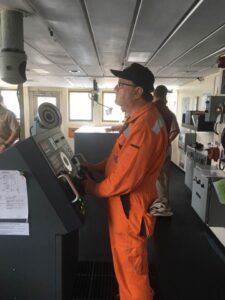Catholic Labor Network Statement on Police Unions and Racism
Recent events have reminded all of the deep wounds of racism that continue to afflict the United States, and of the particular problem of racist violence in our systems of policing and criminal justice. The death of George Floyd at the hands of Minneapolis police has inspired wide-ranging discussions of this issue and possible remedies, including discussion of the role of police unions — whether unions of police officers contribute to the problem by protecting those who abuse their authority.
The Catholic Labor Network has struggled with this question and considered it in light of Catholic Social Teaching. Pope Leo XIII’s groundbreaking social encyclical Rerum Novarum (1891) established the right of workers to organize in unions as a basic element of Catholic social doctrine in the modern age. Eight decades later, reflecting on Rerum Novarum, Pope Paul VI elaborated on the role of unions in society in his encyclical, Octogesima Adveniens (1971), observing that “The important role of union organizations must be admitted: their object is the representation of the various categories of workers, their lawful collaboration in the economic advance of society, and the development of the sense of their responsibility for the realization of the common good.” (14).
Informed by these two points — the right of workers to organize in unions, and the obligation of unions (like other associations) to serve the common good — the Catholic Labor Network concludes that 1) law enforcement personnel, like other workers, have a natural right to form unions and associations, but 2) these unions are obligated to go beyond serving their members and to actively participate in the fight to root out the evil of racism, especially in the criminal justice system and within their own ranks.
Some commentators have been quick to invoke the killing of Mr. Floyd to challenge the right of police to organize in unions at all, arguing that collectively bargained disciplinary procedures make it difficult to fire problem employees. However, the Catholic Labor Network notes that some of the most prominent advocates of this viewpoint have long sought to weaken or eliminate unions for other categories of public employees as well (e.g. Daniel DeSalvo, “Tired of Bad Cops? First, Look at Their Labor Unions”, Washington Post, 6/3/2020). The Pastoral Constitution on the Church in the Modern World instructs us that “Among the basic rights of the human person is to be numbered the right of freely founding unions for working people,” (Gaudium et Spes 68) and that indeed Pope St John Paul II has called labor unions “an indispensable element of social life” (Laborem Exercens, 20) in the modern era. The right of workers, including police department personnel, to form unions is sacred and inviolable. Replacing unilateral management fiat with a just grievance procedure is one of the goods that all workers seek when they organize.
Nevertheless, along with that right comes a duty to serve the common good. In a world where all of us are wounded by sin, we face a perpetual temptation to use our powers for selfish ends. This is a special challenge for those granted authority over others. We have witnessed with sorrow how a clerical culture, protective of its members at the expense of those the Church is commissioned to serve, enabled the scandal of clerical sexual abuse to fester for decades. In a similar way, we have seen how many police unions have come to occupy a role where they protect officers who abuse their authority. This has come spectacularly to light in the role and activities of the Police Officers Federation of Minneapolis under its current leadership. Significant structural racism plays a key and harmful role in our current policing practices. Rather than justifying this, police unions have an obligation to listen to the voices of the community and take up the fight against racism in our system of policing.
Some voices in the labor movement have called upon the AFL-CIO and its state labor federations to expel all affiliated police unions from their ranks. This is a legitimate position, many of whose advocates rightly contend that the labor movement must actively commit itself to antiracism. The Catholic Labor Network prefers the historic approach of the labor movement to addressing unions whose actions have reflected poorly on the broader movement: when unions have been found to be compromised by organized crime, for example, their participation in labor bodies was made contingent on reforms. The Catholic Labor Network believes instead that the labor movement should remain open to those police labor organizations that commit to working to end systemic racism in policing and who are willing to join in solidarity with broader efforts to move from mass incarceration toward greater amelioration of the needs of the communities of color. We call upon our brothers and sisters in the police unions to join a dialogue with the community and human services agencies on the future of policing and public order and to envision a future worthy of the call we have received.

